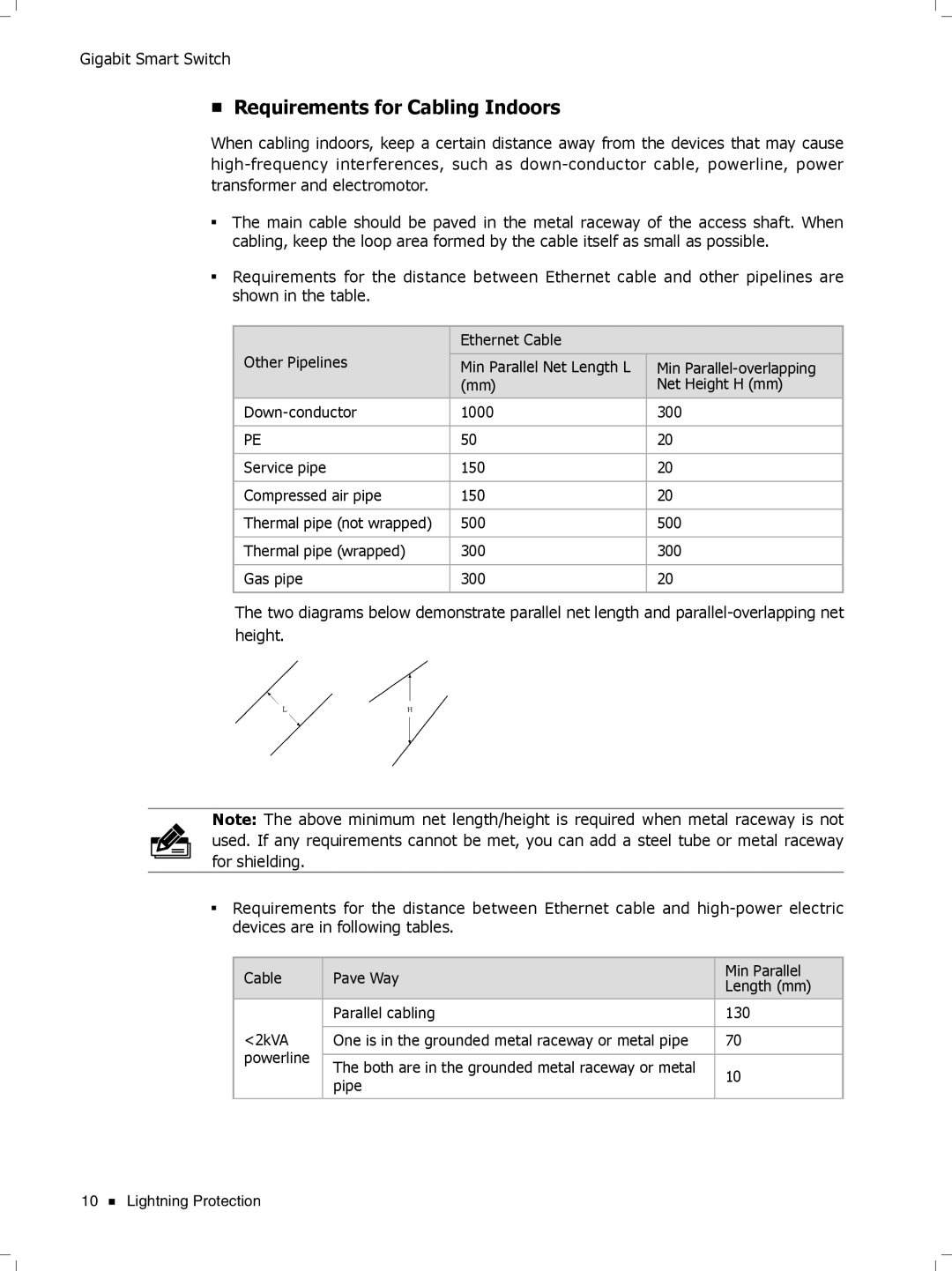
Gigabit Smart Switch
■■ Requirements for Cabling Indoors
When cabling indoors, keep a certain distance away from the devices that may cause
■■
■■
The main cable should be paved in the metal raceway of the access shaft. When cabling, keep the loop area formed by the cable itself as small as possible.
Requirements for the distance between Ethernet cable and other pipelines are shown in the table.
| Ethernet Cable |
|
Other Pipelines |
|
|
Min Parallel Net Length L | Min | |
| (mm1 | Net Height H (mm1 |
|
|
|
1000 | 300 | |
|
|
|
PE | 50 | 20 |
|
|
|
Service pipe | 150 | 20 |
|
|
|
Compressed air pipe | 150 | 20 |
|
|
|
Thermal pipe (not wrapped1 | 500 | 500 |
|
|
|
Thermal pipe (wrapped1 | 300 | 300 |
|
|
|
Gas pipe | 300 | 20 |
|
|
|
The two diagrams below demonstrate parallel net length and
Note: The above minimum net length/height is required when metal raceway is not used. If any requirements cannot be met, you can add a steel tube or metal raceway for shielding.
■■ Requirements for the distance between Ethernet cable and
Cable | Pave Way | Min Parallel | |
Length (mm1 | |||
|
| ||
|
|
| |
| Parallel cabling | 130 | |
<2kVA |
|
| |
One is in the grounded metal raceway or metal pipe | 70 | ||
powerline |
|
| |
The both are in the grounded metal raceway or metal | 10 | ||
| |||
| pipe | ||
|
| ||
|
|
|
10 ![]() Lightning Protection
Lightning Protection
